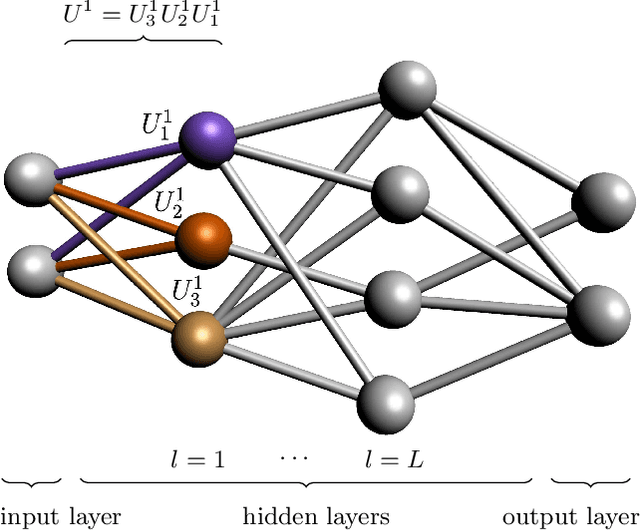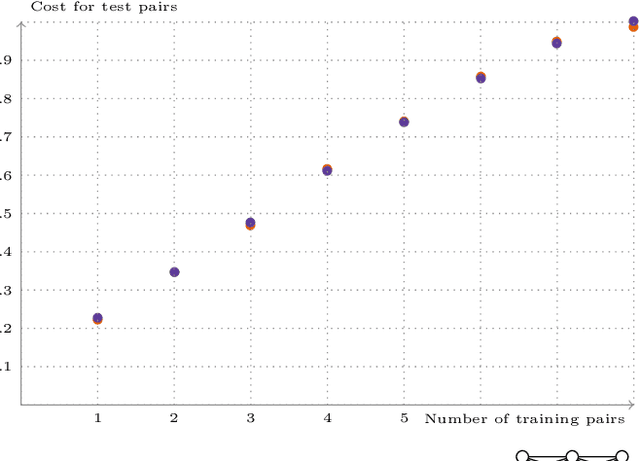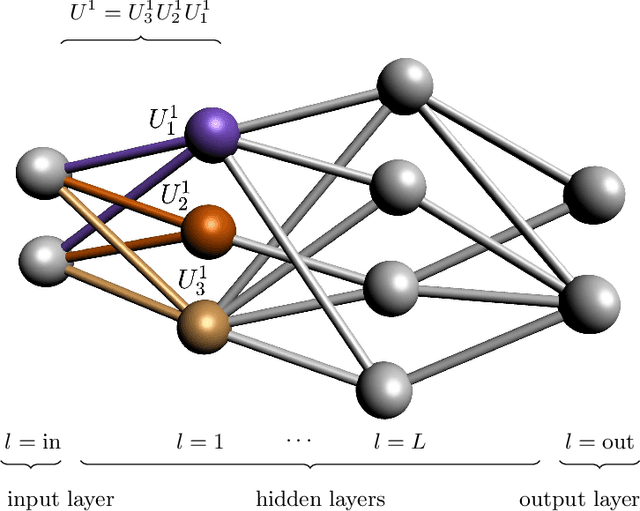Robert Salzmann
Sample complexity of quantum hypothesis testing
Mar 26, 2024Abstract:Quantum hypothesis testing has been traditionally studied from the information-theoretic perspective, wherein one is interested in the optimal decay rate of error probabilities as a function of the number of samples of an unknown state. In this paper, we study the sample complexity of quantum hypothesis testing, wherein the goal is to determine the minimum number of samples needed to reach a desired error probability. By making use of the wealth of knowledge that already exists in the literature on quantum hypothesis testing, we characterize the sample complexity of binary quantum hypothesis testing in the symmetric and asymmetric settings, and we provide bounds on the sample complexity of multiple quantum hypothesis testing. In more detail, we prove that the sample complexity of symmetric binary quantum hypothesis testing depends logarithmically on the inverse error probability and inversely on the negative logarithm of the fidelity. As a counterpart of the quantum Stein's lemma, we also find that the sample complexity of asymmetric binary quantum hypothesis testing depends logarithmically on the inverse type~II error probability and inversely on the quantum relative entropy. Finally, we provide lower and upper bounds on the sample complexity of multiple quantum hypothesis testing, with it remaining an intriguing open question to improve these bounds.
Learning Quantum Processes with Memory -- Quantum Recurrent Neural Networks
Jan 19, 2023



Abstract:Recurrent neural networks play an important role in both research and industry. With the advent of quantum machine learning, the quantisation of recurrent neural networks has become recently relevant. We propose fully quantum recurrent neural networks, based on dissipative quantum neural networks, capable of learning general causal quantum automata. A quantum training algorithm is proposed and classical simulations for the case of product outputs with the fidelity as cost function are carried out. We thereby demonstrate the potential of these algorithms to learn complex quantum processes with memory in terms of the exemplary delay channel, the time evolution of quantum states governed by a time-dependent Hamiltonian, and high- and low-frequency noise mitigation. Numerical simulations indicate that our quantum recurrent neural networks exhibit a striking ability to generalise from small training sets.
Efficient Learning for Deep Quantum Neural Networks
Feb 27, 2019



Abstract:Neural networks enjoy widespread success in both research and industry and, with the imminent advent of quantum technology, it is now a crucial challenge to design quantum neural networks for fully quantum learning tasks. Here we propose the use of quantum neurons as a building block for quantum feed-forward neural networks capable of universal quantum computation. We describe the efficient training of these networks using the fidelity as a cost function and provide both classical and efficient quantum implementations. Our method allows for fast optimisation with reduced memory requirements: the number of qudits required scales with only the width, allowing the optimisation of deep networks. We benchmark our proposal for the quantum task of learning an unknown unitary and find remarkable generalisation behaviour and a striking robustness to noisy training data.
 Add to Chrome
Add to Chrome Add to Firefox
Add to Firefox Add to Edge
Add to Edge